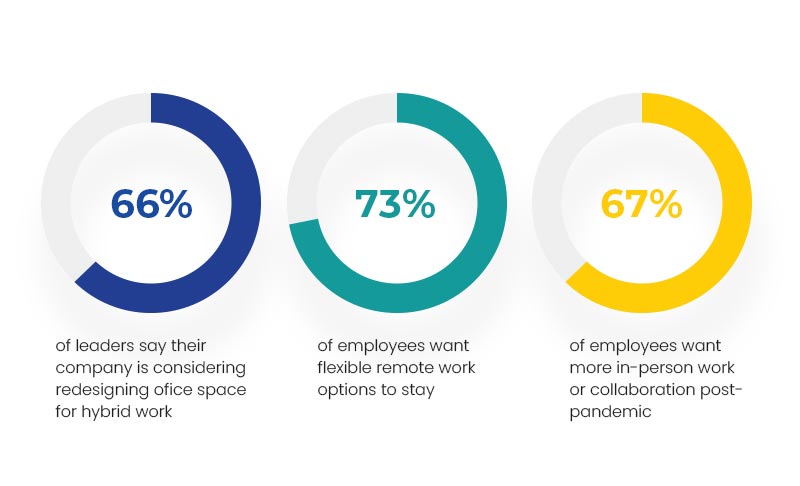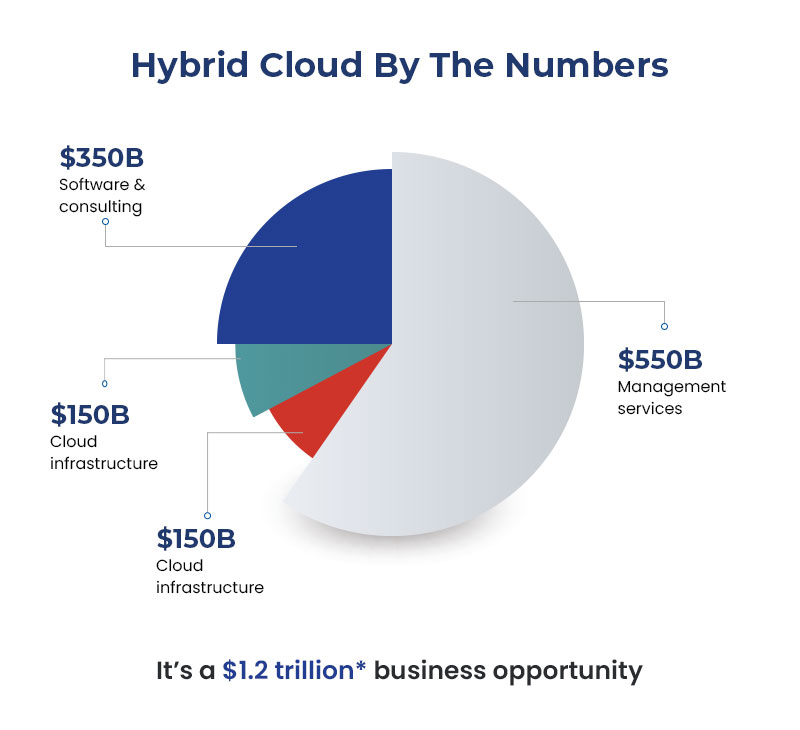
Working, and that too from anywhere, anytime seems strange right? However, with what the Delta-Omicron tag team event has taught us, nothing should feel strange anymore. After being bruised by the pandemic, the addition of salt to the wound for remote workers is sticking to fixed working hours.
As magical as it may sound, there exists a solution to these problems – a hybrid cloud implementation.
It is the mixed computing service, and storage environment encompassing the public and private cloud features.

The turbulent environment makes it even more difficult for organisations as they require some employees to stay present on the premises too. Can you believe that remote working has become so trendy that employees are even accepting 10% pay cuts to avail the facilities from their offices? True, Owl Lab’s survey has reckoned that 23% of respondents are willing to make compromises.
The working motivational factors differ from the office and home premises, so adapting to those is crucial. The next question is, how to handle both categories simultaneously? A study of 30,000 people from 31 different countries backs the idea of implementing the hybrid workplace model to deal with the in-office ‘cubicle’ workers and remote ‘anywhere’ workers at the same time.
Dealing with the hurdles is essential if you want to reap the benefits of these concepts. Just imagine, if you cannot convey the goals, and objectives to all the employees, do you think you will be able to prosper? All you will face is a struggle to achieve success. Keeping all the employees on the same page through cutting-edge structures and communication modes is essential.
As you cannot apply similar strategies for the defenders and the strikers in a football match, the same goes for organisations in relation to management strategies. Managers need to figure out different approaches to deal with remote workers and in-office workers to avoid process hindrances.
A 2022 forecast says 91% of organisations globally would rely on the hybrid workplace model, integrated with the hybrid cloud helps in working from anywhere and anytime. This will accelerate the workflow and strengthen the collaboration and cooperation among cross-functional teams within organisations through cloud application development.

This would lower internal operating costs, leverage efficiency, improve security, and increase business agility for a unified workforce experience and improved budget pliability. Resource optimisation, interoperability, security, and scalability are the benefits that you get when you incorporate the hybrid workplace model with a hybrid cloud.
The world is changing daily, why sit back? Let’s be more dynamic, adaptive, trendy, and flexible to stay ahead by updating the hybrid cloud continuously in the hybrid workplace model for better working anywhere from any time.